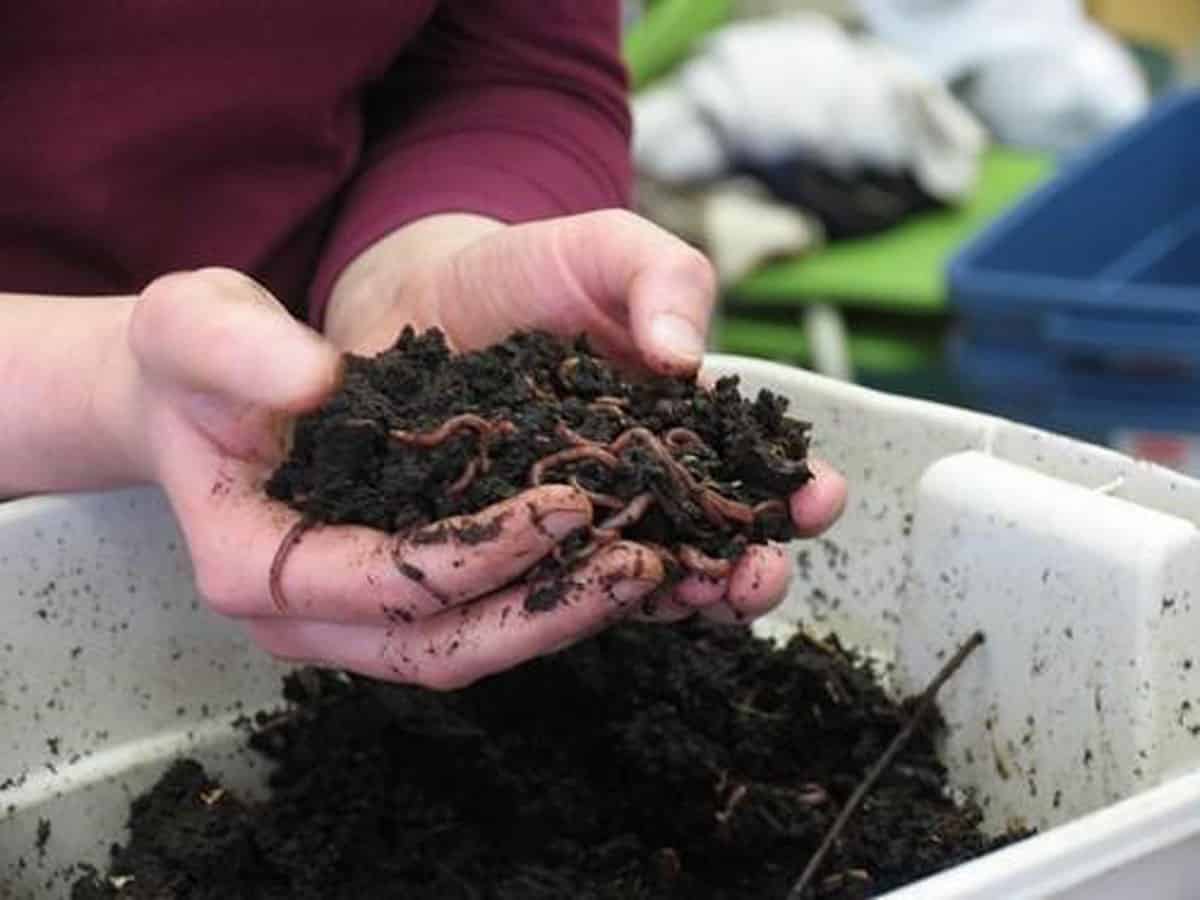Vermiculture is the practice of deliberately cultivating worms, specifically earthworms, either at large scales or in smaller artisanal systems. It’s how bait and tackle shops next to popular fishing lakes get those fat and juicy “nightcrawlers” to sell to anglers hoping to hook the next big one. Some practice vermiculture to raise worms for their gardens or small farms in a bid to improve soil health. Typically, dedicated vermiculturalists toss out the used soil mixtures these worms are raised in, but agricultural scientists now know that doing this is a huge mistake.
As it turns out, this byproduct of vermiculture, called vermicompost, may be one of the most powerful fertilizers around, derived from techniques that almost any smallholder farmer can easily adopt and practice on their own. Recent professional deep dives into the potential benefits and drawbacks of using vermicompost for smallholder agriculture are all reaching the same conclusion: for the ultimate organic fertilizer, just add worms.
“Herbs…and legumes exhibited the largest biomass increase in the presence of vermicompost.”
Worms make the soil healthy
Nearly everyone has been taught at a young age that earthworms are good for soils, but these lessons often fail to fully explain why this is the case. We know worms break down organic matter and excrete wastes, adding nutrients to soils. Arguably, an even greater ecological function of worms is that they mix, aerate, and hydrate soils. Dead leaf litter falls to the ground and decomposes on the surface, forming layers over time. Worms carry this nutrient-rich organic material from the surface deeper underground.
Over time, this continuous vertical and horizontal mixing of material causes a soil to lose defined layers and take on a uniform composition where nutrients and minerals are more evenly distributed. Worms also loosen soils. This allows air to penetrate deeper into the ground, while worm burrows later become channels for rainwater to more easily trickle into soils. The loosening and burrowing effect also makes it easier for plants to grow and establish root systems. Worms can even clean soils by filtering out contaminants.
“Yield improvement of rice through the use of vermicompost will benefit rice farmers.”
Worms also create vermicompost, which some call worm humus, “the product of the composting process using various species of worms, usually red wigglers, white worms, and other earthworms, to create a heterogeneous mixture of decomposing vegetable or food waste, bedding materials, and vermicast,” as the market research company Market Reports World put it in a recently published investor note. They believe sales for commercially manufactured vermicompost will grow by nearly 15% annually by 2028. That’s because this worm soil is great for crops, we now know.
The evidence supporting vermicompost
Three years ago, a team of French agronomists and environmental scientists published a comprehensive overview of what modern science currently knows about vermicompost. The researchers covered and analyzed 68 separate peer-reviewed studies detailing research and experiments conducted globally, seeking to determine whether the evidence in favor of vermicompost as an ideal fertilizer is more than just anecdotal. They came away from this exercise impressed. “We found that vermicompost brought about average increases of 26% in commercial yield, 13% in total biomass, 78% in shoot biomass, and 57% in root biomass,” they wrote. In other words, crops grown with vermicompost grow bigger, stronger, and yield more food on average. They say setting worms loose on cow manure produces the most potent vermicompost. “Herbs…and legumes exhibited the largest biomass increase in the presence of vermicompost,” they wrote (https://link.springer.com/article/10.1007/s13593-019-0579-x).
More evidence has emerged since that landmark 2019 study was released.
This year, scientists working in Bangladesh discovered that vermicompost significantly increases rice yields. The team of Bangladeshi and Australian scientists was mainly trying to determine the mechanisms behind enhancing soil fertility via vermicompost. They discovered that the worm soil adds phosphorus and nitrogen, but that the degree of nutrient dispersal depends on the nature of the soil—floodplain soils seem to absorb nutrients better than terraced soils.
Farmers relying on vermicompost see on average 25% greater yields of Boro rice, the study found. “Yield improvement of rice through the use of vermicompost will benefit rice farmers and will play a significant role in the development of Southeast Asian countries,” the scientists predicted in the journal Agriculture (https://www.mdpi.com/2077-0472/12/3/376).
In May, Pakistani agricultural scientists reported vermicompost could be a potent fertilizer for growing maize. Writing in PLOS ONE, they discovered worm waste grows taller, heavier, more robust maize plants yielding more grains, especially when combined with biochar. “Biochar and vermicompost are organic amendments that can not only improve organic residues but also increase soil nutrient concentration,” they noted while cautioning more study is needed to see how these organic fertilizers hold up in different climates (https://journals.plos.org/plosone/article?id=10.1371/journal.pone.0267483).
The worms crawl in, the worms crawl out, the worms grow larger corn and rice sprouts? Perhaps it’s not that simple, but the evidence gathered to date is rather compelling and interest in vermicompost is rising. Projects spearheading vermicompost as a potential low-cost and low-tech solution for boosting smallholder farmers’ yields pique our interest at Grow Further, as well.
— Grow Further
Photo credit: Worms producing vermicompost. Craik Sustainable Living Projects.




